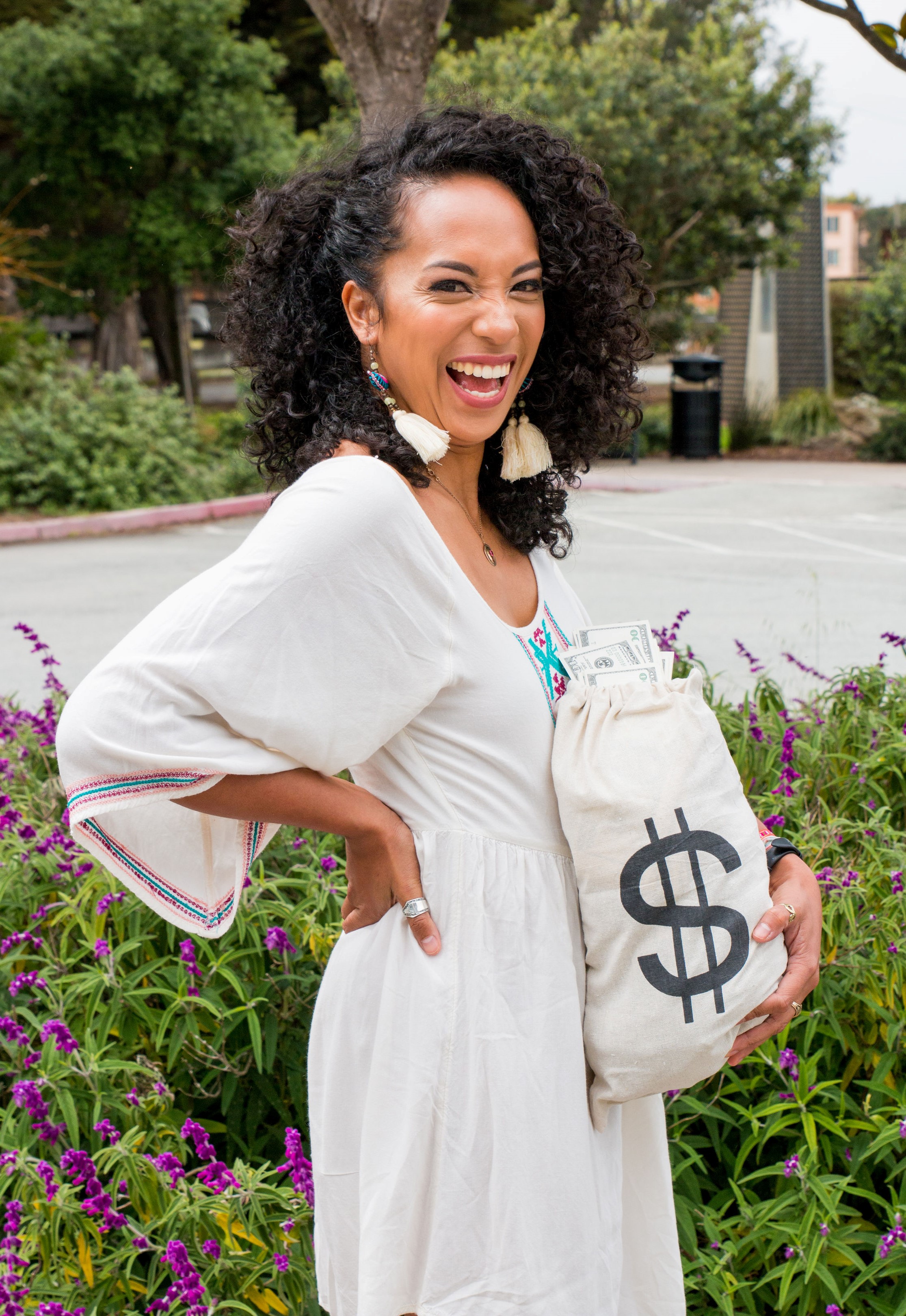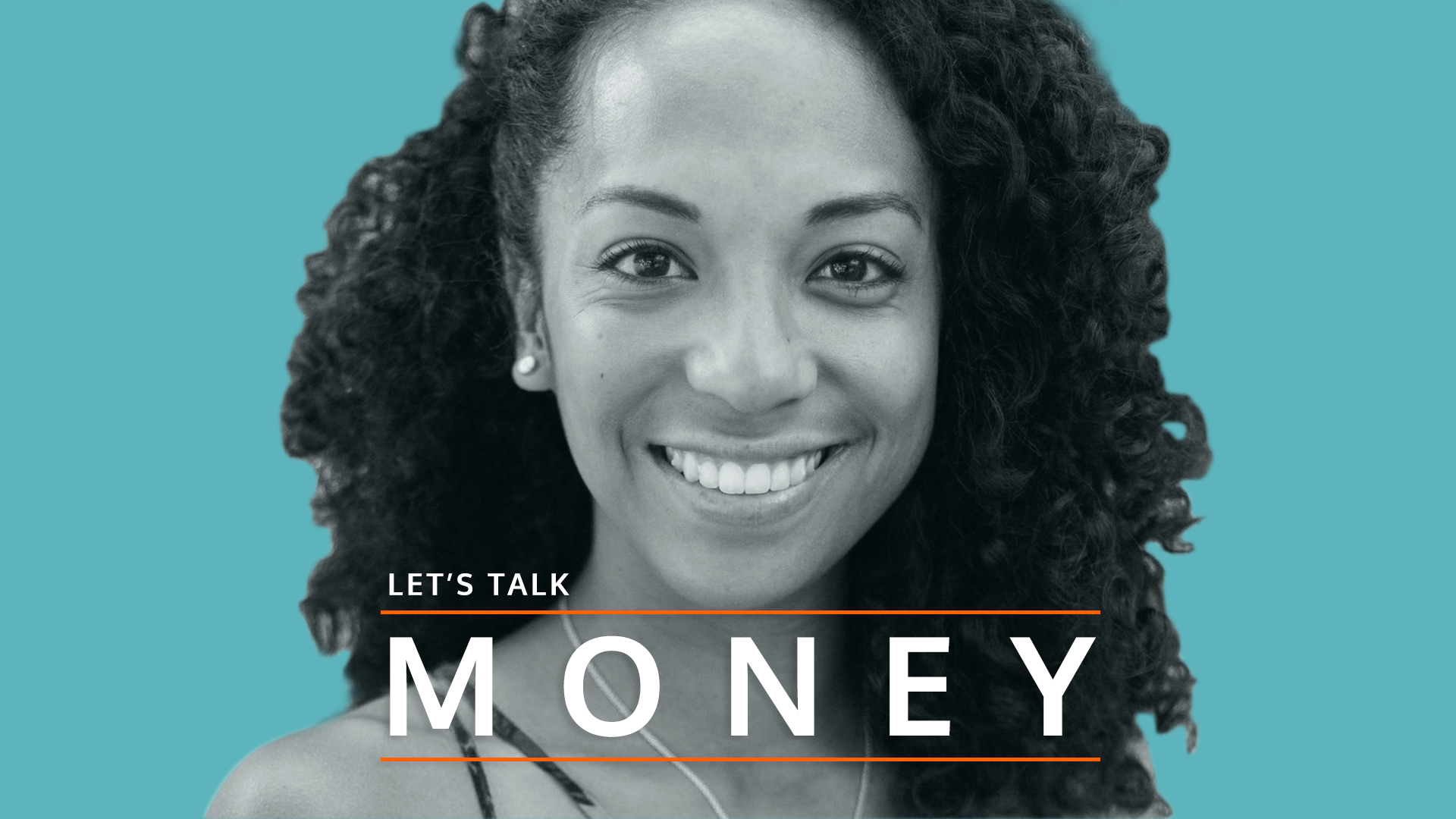Welcome to Let’s Talk Money, where you’ll hear from financially savvy people on the small changes they made that helped them build sustainable money habits, reduce their stress, and set themselves up for financial and personal well-being. We never seem to hear about the critical connection between our financial well-being and our whole human well-being. But money is a top cause of significant stress for Americans, according to the American Psychological Association, and unchecked stress levels have been linked to issues from heart disease to diabetes to depression. The good news is that there’s a powerful, impactful approach to managing our finances and our health, based on the latest behavioral science showing that starting small — with too-small-to-fail Microsteps — is the most effective way to make habits stick. It’s time to make this a key part of our conversation about our relationship with money. Read on for compelling stories and advice on how to take control of your financial and overall health, one small step at a time.
By Berna Anat as told to Alexandra Hayes
I spent a lot of my early 20s in New York City as a freelancer — an extremely broke freelancer. I thought my financial situation was fine because a lot of my friends were in the same position. But it wasn’t fine. I hit a low point when I had to resort to cashing out savings bonds that I’d had since I was a baby in order to make rent one month.
Getting a full-time job seemed like the right move, especially because I still had $38,000 left in student loan debt. Having a steady paycheck again, instead of having to piece together my rent like Lego pieces every month, gave me some comfort.
When the regular checks started coming in, I was inspired to start budgeting. I started to do some research online, but to be honest, most of the personal finance advice out there didn’t seem to relate to my situation. Where were the people who looked like me, or sounded like me, or came from a background like mine? (I’m a child of Filipino immigrants.) When certain groups are pushed out of the personal finance conversation, it makes them feel like there’s something wrong with them — and there is not.
This realization has a bright side, because it’s what got me into my own personal finance journey, and into educating other people like me about their finances. I teach an online budgeting course now that makes the money conversation more fun, relevant, and accessible. My goal is to let people know that it’s possible to overcome financial stressors and pay off your debt like I did. Two years ago, my partner and I both paid off our student loans at the same time, and it’s something that we feel so grateful for every day that we wake up without that crippling stress of debt. I wasn’t aware of how the stress was weighing on me until after I got a full-time job and began to understand budgeting. I didn’t feel the weight until I understood how to manage the weight. And now that I have it together, it feels like having lived off of one lung my entire life and now I have two. Here are some of the tips that helped me on my path to financial stability and freedom.
Unpack your money baggage
It’s really important to step back and act as your own financial therapist. Ask yourself: What is the very first experience that you had with money as a child? How was money talked about and not talked about? I think something that’s really common with marginalized communities and families of immigrants, in particular, is that we don’t talk about money at all. Talking about money is taught to be this shameful thing. We need to think about the confusing or unhelpful things that we saw about money growing up — and how what we saw led to the habits we have now. It’s an incredibly important Microstep because you can take on all the budgeting tips in the world, and enroll in all the personal finance courses, and fill out all the spreadsheets — but if you don’t understand where your bad financial habits came from, you’re likely to repeat them in the future.
Start your own money journal
When I first looked up how to budget, people suggested I use a certain app, or an Excel sheet, and told me I needed to input all my purchases and be meticulous. These tips worked for me for a little bit, but I fell off really quickly. I felt discouraged, but instead of giving up, I decided to start a “money journal,” since journaling was already something I did almost every night. I wrote about how much my paycheck amounted to, and how I felt about that number. I wrote about what I needed to spend it on, and then what I actually did spend it on. And the more I started to journal about my money experience, the more I saw patterns in my spending. For example, I saw that I spend mindlessly when I’m treating my friends — so I decided to put some sort of cap on that (not knowing at the time that putting a cap on something is setting a budget!).
What started out as just a fun idea turned into actual budgeting. Journaling helped me see how I spend money and how it connects to my moods and my feelings, and when I started to give myself money challenges (“See if you can only spend $40 instead of $50 at Trader Joe’s this week”) — that’s when my relationship with money really started to change. It blew my mind because I learned that there’s another way into this whole budgeting thing; it’s not spreadsheets and it’s not listening to this out-of-touch man dispelling one-size-fits-all money advice — it’s making up an entirely different system for myself.
Analyze the last three months of your spending
It’s not a great idea to make a budget overnight. To begin budgeting, you need to look at the last few months of your spending. This is helpful because it alerts you to trends in a way that tracking your money for just a week can’t reveal — like, “Whoa, did I really spend that much on groceries in the last three months? And did I really go and spend $200 on shoes in that same time period?” Once you have this clear snapshot, you may catch a lot of really wild spending patterns — and then will be empowered to fix them. And more importantly, you can get a holistic lens into what you spend money on that you might not value.
Open up three different bank accounts
In my experience, keeping all my money in two big piles — my savings account and my checking account — was really unhelpful. I saw my checking account as money I could spend, and then my savings account as money I shouldn’t spend, but probably will anyway. (And I did.) Having three bank accounts has really helped me categorize the three ways that I spend money in my real life. A lot of personal finance creators talk about the 50-30-20 rule, which is a very simple skeleton for a beginner budget: 50% of your paycheck should go towards “adulting” (like the recurring bills you need to survive), 30% of your paycheck should go towards fun money, which I call my “ratchetry” account(food, money, shopping, things for your friends), and then 20% of your paycheck should go towards a financial goal (a savings goal, or some debt that you’re trying to pay off). For me, it just makes sense for each of those categories to have its own bank account.
Confide in a trusted friend or mentor
I always encourage having a money conversation with someone you feel safe with, because it’s so important to know that you’re not alone with your circumstances. Opening up about your financial worries to other people not only makes you realize that you’re not unique in your struggles, but also allows you to become a source of strength for them. When I started talking about my debt for the first time with my three best friends — and these are like the smartest, most put-together people I’ve ever known — they started to show me cracks in their lives that I didn’t even realize were there. And that was incredibly impactful. Try to find that connection with someone around you. And trust me: You don’t have to reach very far, because everyone is sitting on some sort of financial anxiety. You’re not alone.
Follow us here and subscribe here for all the latest news on how you can keep Thriving.
Stay up to date or catch-up on all our podcasts with Arianna Huffington here.


